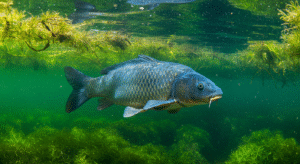 A recent study from the University of Exeter highlights the crucial role that fish play in combating climate change through a process called bioturbation. This involves fish disturbing and mixing seabed sediments by burrowing, feeding, and digging, which enhances the ocean floor’s capacity to store organic carbon—a key factor in reducing atmospheric greenhouse gases.
A recent study from the University of Exeter highlights the crucial role that fish play in combating climate change through a process called bioturbation. This involves fish disturbing and mixing seabed sediments by burrowing, feeding, and digging, which enhances the ocean floor’s capacity to store organic carbon—a key factor in reducing atmospheric greenhouse gases.
Researchers identified 185 fish species contributing to this process, with 120 of them being commercially fished. Notably, species like Atlantic cod, European eel, and common skate are significant bioturbators but face threats from overfishing and habitat degradation. For instance, the European eel and common skate are critically endangered, while the Atlantic cod is listed as vulnerable. These declines not only threaten biodiversity but also diminish the natural mechanisms that help sequester carbon on the ocean floor.
The study emphasizes the need for sustainable fishing practices to preserve these species and maintain the health of marine ecosystems. Protecting these fish is essential not just for biodiversity but also for their role in mitigating climate change.
Source: Earth.Com
